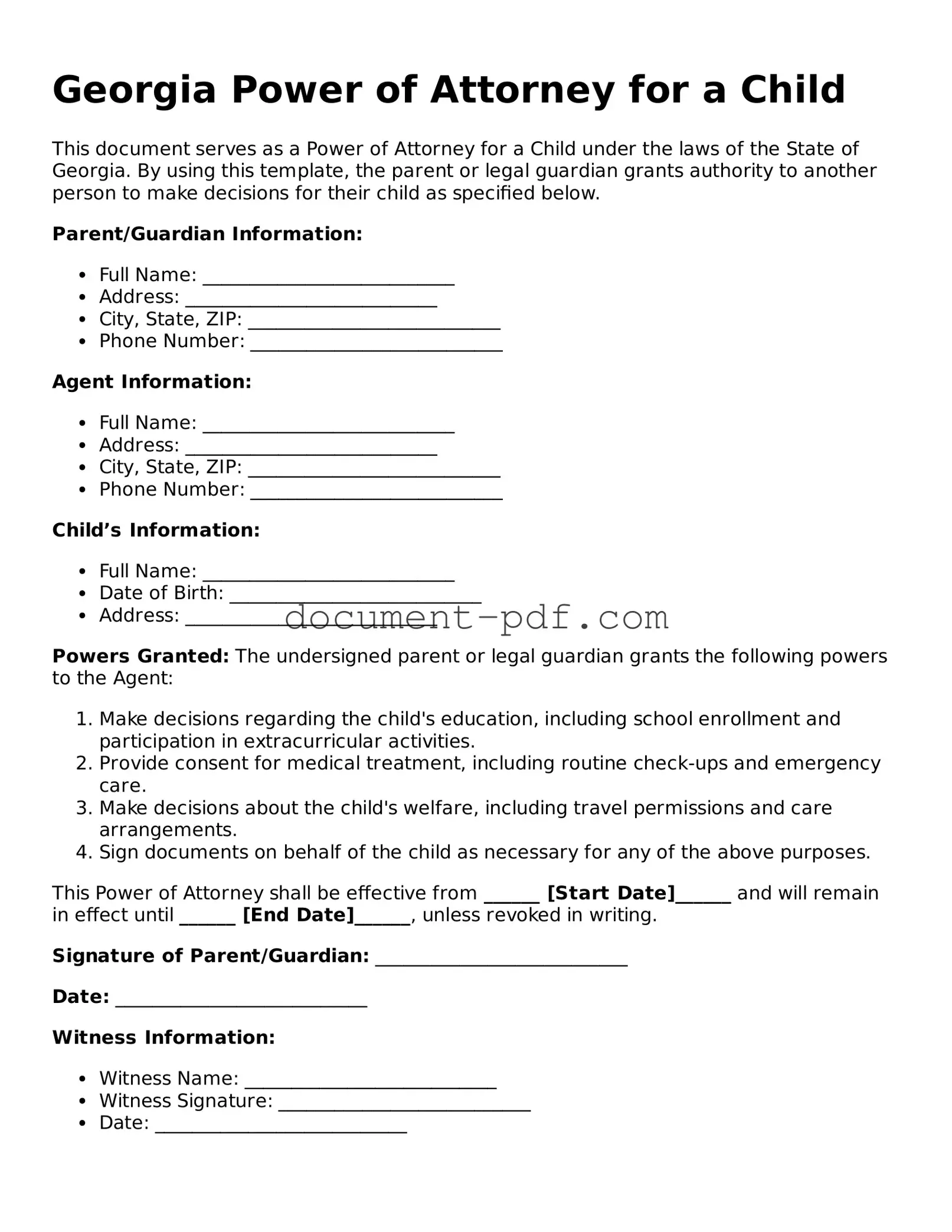Attorney-Verified Georgia Power of Attorney for a Child Template
The Georgia Power of Attorney for a Child form is a legal document that allows a parent or guardian to designate another individual to make decisions on behalf of their child. This form is particularly useful in situations where the parent or guardian is temporarily unavailable, ensuring that the child's needs are met without interruption. Understanding the nuances of this form can provide peace of mind for caregivers and parents alike.
To fill out the form, click the button below.
Access Power of Attorney for a Child Editor Here

Attorney-Verified Georgia Power of Attorney for a Child Template
Access Power of Attorney for a Child Editor Here
Finish the form without slowing down
Edit your Power of Attorney for a Child online and download the finished file.
Access Power of Attorney for a Child Editor Here
or
Click for PDF Form
